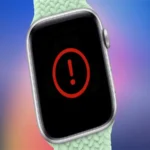Karachi Report by Ayesha Masood
Naegleria fowleri is a deadly and dangerous protozoan that attacks the human brain. Commonly referred to as the “brain-eating amoeba,” it invades brain cells and destroys them.
According to details, this parasite is mostly found in water bodies such as lakes, ponds, rivers, swimming pools, or any water that is poorly maintained or has low chlorine levels. It enters the human body through the nose and travels directly to the brain, where it begins to consume brain tissue.
Doctors have stated that unfortunately, there is currently no definitive cure for this infection. Although some medications have shown limited effectiveness, the infection is often fatal. The symptoms usually begin to appear within 15 to 16 days of exposure, and there are no early warning signs. Once symptoms emerge, they may include high fever, severe headache, and neck stiffness. A case of Naegleria fowleri was reported in Jinnah Hospital in 2025.
In conclusion, as there is no cure for this deadly disease, prevention remains the only solution. Water should be properly chlorinated, and people are advised to avoid swimming in unsafe or unclean water, especially during the summer months. Citizens are urged to ensure the cleanliness of swimming pools and water bodies in their surroundings or to report unsanitary conditions to local authorities. Remember, timely precaution is the only protection against this fatal disease.














